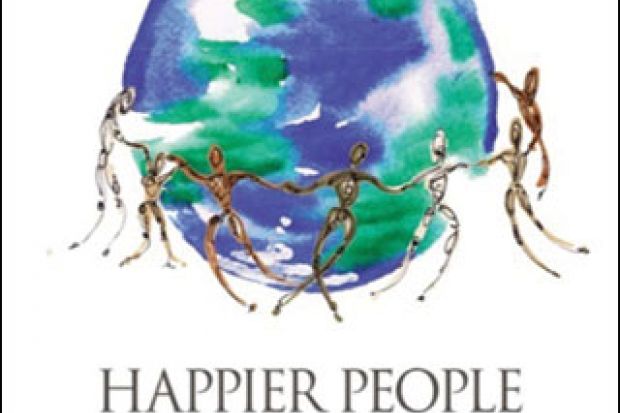As someone who has always considered that famous phrase “the pursuit of happiness” to be dangerous nonsense, I came to this book with low expectations. Surely human beings’ insistence on seeking pleasure at any cost has been a disastrous enterprise, running counter to the needs of the planet? Not necessarily, Teresa Belton argues convincingly: translate “happiness” as “well-being”, and we begin to see how a concern for the condition of humanity can complement a concern for the condition of non-human nature.
Overall, Belton offers four basic requirements for sustaining life on Earth: countering “the culture of consumption”, with its attendant waste; making it our business to understand climate change and recognising what we need to do to prevent further damage; systematically addressing the challenge of “ill-being”, which she sees as built into our current way of life; and a restructuring of economics in the light of ecology, so that it attends to the real requirements of our earthly “household”.
It is hard to fault the thoroughness of her analysis - evident, for example, in her outline of what being a “Happily Modest Consumer” would actually involve. Moreover, this is not just a matter of speculation: Belton bases much of her exposition on the actual experience of several individuals from differing classes and backgrounds whom she interviewed for this book. Thus we are encouraged to engage seriously with the implications of changing one’s way of life. These interviewees, identified only by their first names, all have interesting and instructive stories to tell. The common wisdom they have acquired might be summarised by Wordsworth’s famous phrase, “plain living and high thinking”.
At the same time, I became aware that Happier People Healthier Planet is informed by a wealth of theory, and does not rely on reportage alone. Indeed, Belton reminds us early on how important to her has been the examples set by John Ruskin, by E. F. Schumacher and by Herman Daly. I liked in particular the way she spelled out the importance of Daly’s “steady-state economics”, dedicated to the goal of achieving “a more modest ecological impact in a happier society under the full control of its citizens”.
However, Belton’s stress on modest expectations does not blind her to the importance of fostering creativity, play and a capacity for wonder in children and adults alike. How else would we be able to empathise with the green world that sustains us? Action in itself is not the full answer. Belton discourses at some length upon the spiritual dimension of ecology, which might inform our activism, reminding us of the necessity of guiding our “doing” by a sense of “being”.
My only reservation about this excellent handbook of ecologically responsible living is that Belton does not dwell long enough on the problem of overpopulation. According to a recent authoritative report, half of the world’s wildlife has been lost in the past 40 years. It is surely no coincidence that in the same period the number of human beings on the Earth has doubled. If we “do the maths”, we might conclude that the greenest thing anyone can do is not to have children. But putting that argument aside, I would strongly recommend this book to all those who want to ensure that they benefit the world they are privileged to inhabit.
Happier People Healthier Planet: How Putting Wellbeing First Would Help Sustain Life on Earth
By Teresa Belton
Silverwood, 372pp, £13.95
ISBN 9781781322604
Published 8 September 2014
Register to continue
Why register?
- Registration is free and only takes a moment
- Once registered, you can read 3 articles a month
- Sign up for our newsletter
Subscribe
Or subscribe for unlimited access to:
- Unlimited access to news, views, insights & reviews
- Digital editions
- Digital access to THE’s university and college rankings analysis
Already registered or a current subscriber? Login





